“The five types of gynecologic cancers are
ovarian, endometrial/uterine, cervical,
vulvar and vaginal cancer”.1
Umbrella
What may the Gynecologic Cancers Umbrella include?
Depending on the Source (DotS) this Umbrella may include:
- Gyn Cancer
- Gynecologic/Gynaecological Cancer/s
- Women’s Cancer/s
Cancer
What is cancer?
DotS the definition of cancer may vary. The (United States) National Cancer Institute’s (NCI) definition is:
A term for diseases in which abnormal cells divide without control and can invade nearby tissues. Cancer cells can also spread to other parts of the body through the blood and lymph systems”.2
Gynecologic Cancer
What is gynecologic cancer?
DotS the definition of gynecologic cancer may vary. The NCI’s definition is:
Cancer of the female reproductive tract, including the cervix, endometrium, fallopian tubes, ovaries, uterus, and vagina”.3
In Gynecologic Cancers: Gynecologic Cancer Basics – What It Is the (United States) Centers for Disease Control and Prevention’s (CDC) definition is:
In Women’s Cancers (Gynaecological Cancer) the (United Kingdom) Cancer Research UK’s definition is:
Types
What are five types of gynecologic cancers?
In Basics the (United States) Foundation for Women’s Cancers note:
Different Differences
Is each gynecologic cancer different?
Yes. In Gynecologic Cancers: Gynecologic Cancer Basics – Types the CDC explain:
Symptoms
What are common symptoms of gynecologic cancers?
In Gynecologic Cancers: Symptoms of Gynecologic Cancers – Symptoms: Common Symptoms of Gynecologic Cancers the CDC note:
- “Abnormal vaginal bleeding or discharge is common for all gynecologic cancers except vulvar cancer
- Feeling full too quickly or difficulty eating, bloating, and abdominal or back pain are common for ovarian cancer
- Pelvic pain or pressure is common for ovarian and uterine cancers
- More frequent or urgent need to urinate and/or constipation are common for ovarian and vaginal cancers
- Itching, burning, pain, or tenderness of the vulva, and changes in vulva color or skin, such as a rash, sores, or warts, are found only in vulvar cancer”.8
Pap Test
Does the Pap Test screen for all the gynecologic cancers?
No. In Gynecologic Cancers: Reducing Risk for Gynecologic Cancers – Screening Tests the CDC elaborate on:
Risk
How may women reduce their risk for gynecologic cancers?
In Gynecologic Cancers: Reducing Risk for Gynecologic Cancers – Recognize the Symptoms the CDC note:
Health Care Provider
What if I have funny tummy symptoms?
If you have funny tummy symptoms it may be in your best interest to choose to talk to your health care provider about this. In Gynecologic Cancers: Symptoms of Gynecologic Cancers – When To Talk To Your Doctor the CDC explain:
 “If you have vaginal bleeding that is unusual for you, talk to a doctor right away. Any vaginal bleeding after menopause needs to be reported to your doctor. If you have not yet gone through menopause but notice that your periods are heavier, last longer than normal for you, or if you’re having unusual bleeding between periods, talk to your doctor.
“If you have vaginal bleeding that is unusual for you, talk to a doctor right away. Any vaginal bleeding after menopause needs to be reported to your doctor. If you have not yet gone through menopause but notice that your periods are heavier, last longer than normal for you, or if you’re having unusual bleeding between periods, talk to your doctor.
You should also see a doctor if you have any other warning signs that last for 2 weeks or longer and are not normal for you. Symptoms may be caused by something other than cancer, but the only way to know is to see a doctor”.11
Health Topics A-Z
Where may I find Health Topics A-Z related to Gynecologic Cancers?
In Health Topics A-Z you may find:
Links
Where may I find Links related to Gynecologic Cancers?
Your Country may have Links similar to:
Links
This Links List to third party websites is neither comprehensive nor exhaustive. Inclusion on this Links List does not imply endorsement or recommendation. Non-inclusion on this Links List does not imply non-endorsement or non-recommendation. Third party websites are not under the control of Meno Martha International Menopause Directory. Third party websites may contain explicit medical images and/or sexual references. Please read Meno Martha International Menopause Directory’s Links Policy before proceeding to a Link. Please contact Webmaster if you experience a problem with a Link.New or Updated
- Breaking the Silence on Gynae Cancer Inequality [24 September 2025]
- Consumer Video and Podcast Series: 2025 Consumer Videos and Podcasts – Abnormal Uterine Bleeding—When To See A Clinician June 2025]
- Gynae Cancer Awareness Month [September, United Kingdom]
- Gynecologic Cancers: Reducing Risk for Gynecologic Cancers [+ Video] [26 February 2025]
- Gynecologic Cancer Awareness Month [September]
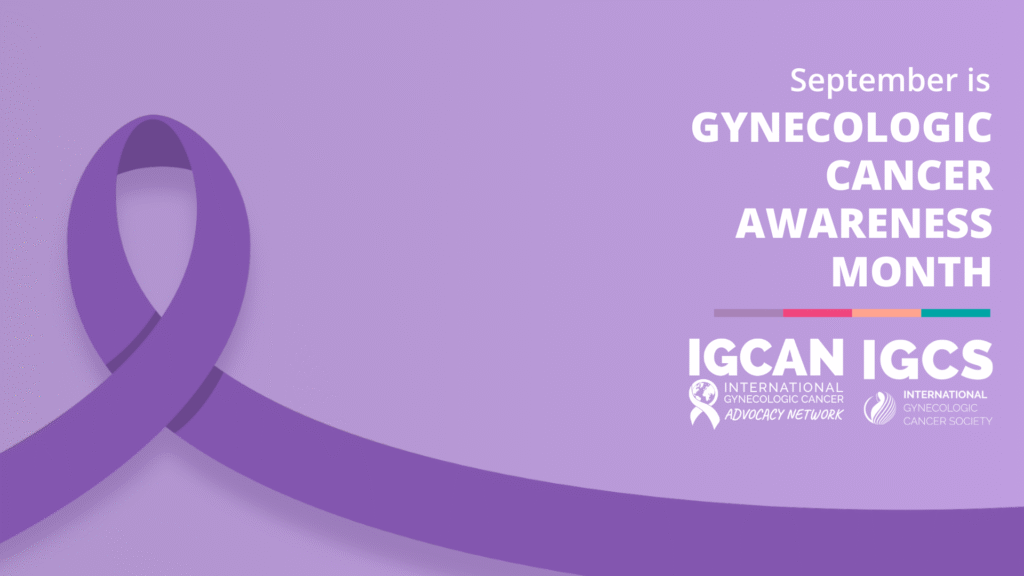
- Gynecologic Cancer Awareness Month [September, United States]
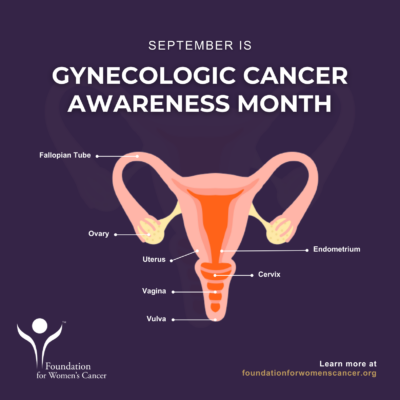
- Ask Early Menopause.org
- Basics
- Breaking the Silence on Gynae Cancer Inequality
- British Gynaecological Cancer Society (BGCS) Ovarian, Tubal and Primary Peritoneal Cancer Guidelines: Recommendations for Practice Update 2024 [September 2024]
- British Gynaecological Cancer Society and British Menopause Society Guidelines Management of Menopausal Symptoms Following Treatment of Gynaecological Cancer [August 2024]
- Cancer and ‘Crash’ Menopause
- Cervical Cancer
- Cervical Cancer
- Cervical Cancer
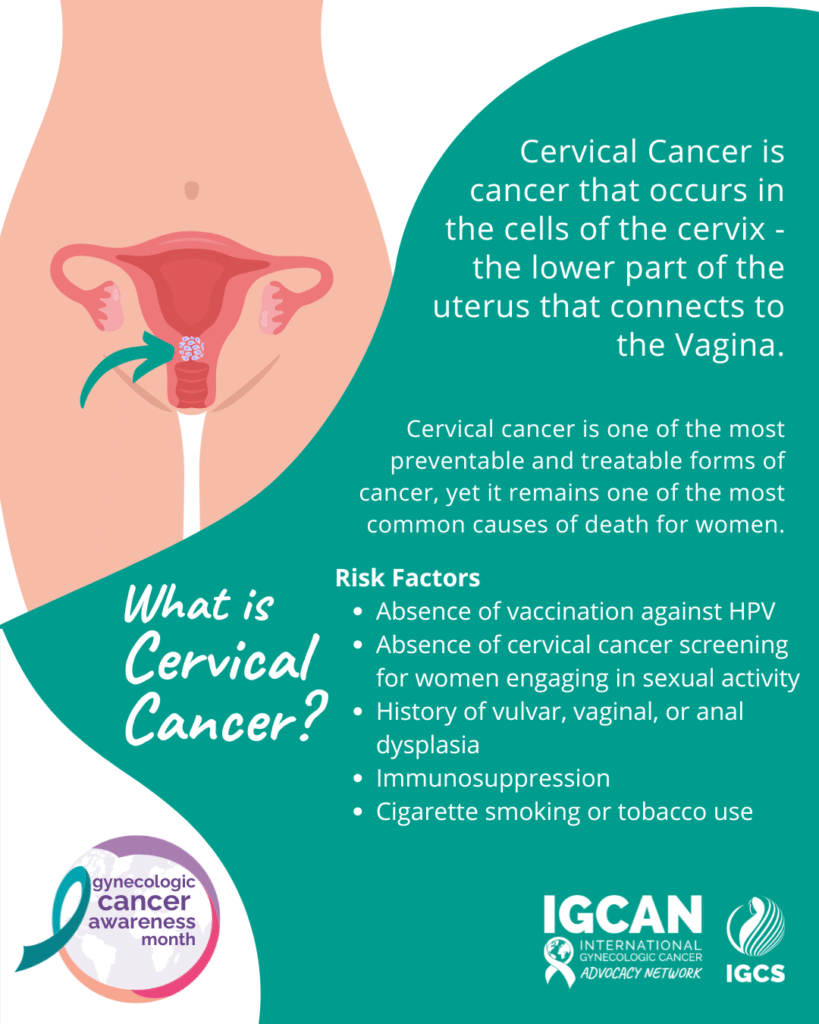
- Cervical Cancer–Patient Version
- Consumer Video and Podcast Series: 2025 Consumer Videos and Podcasts – Abnormal Uterine Bleeding—When To See A Clinician
- Consumer Video and Podcast Series: 2025 Consumer Videos and Podcasts – What Is the Current State of Genetic Testing For Women
- Debunking Myths and Clarifying Facts About Gyn Cancer Screening With “The Period Doctor”
- Do You Go Through Menopause After A Hysterectomy?
- Educational Materials: Fact Sheets
- Educational Materials: Resource Guides [Multiply Languages]
- Endometrial Cancer
- Endometrial Cancer
- Endometrial Cancer Treatment (PDQ)–Patient Version
- Endometrial Cancer: What Are the Risk Factors for Endometrial Cancer?
- Eveappeal.org.uk [Eve Appeal, United Kingdom]
- Fallopian Tube Cancer
- Foundationforwomenscancer.org [Foundation for Women’s Cancer, United States]

- Foundationforwomenscancer.org [Foundation for Women’s Cancer, United States]: Educational Materials – Resource Guides [Multiply Languages]
- Foundationforwomenscancer.org [Foundation for Women’s Cancer, United States]: Fact Sheets – Rare Tumors
- Frequently Asked Questions
- Gestational Trophoblastic Disease
- Gynae Cancer Awareness Month
- Gynaecological Cancers
- Gynaecological Cancers – Ovaries and Uterus
- Gynaecological Cancers – Vaginal and Vulva
- Gynecologic Anatomy
- Gynecologic Cancer Awareness
- Gynecologic Cancer Awareness Month [September]

- Gynaecologic Cancer Awareness Month [September, United States]

- Gynecologic Cancers
- Gynecologic Cancers
- Gynecologic Cancers
- Gynecologic Cancers: 4 Affirmations To Help You Advocate for Yourself
- Gynecologic Cancers: Gynecological Cancers Basics
- Gynecologic Cancers: Reducing Risk for Gynecologic Cancers [+ Video]
- Gynecologic Cancers: Symptoms of Gynecologic Cancers
- Gynecological Cancer At the Menopause
- How Cancer Can Affect Sex and Intimacy
- How Cancer Surgery Can Affect Sex for Women
- Human Papillomavirus (HPV)
- Hysterectomy
- Hysterectomy
- Hysterectomy.org [Hysterectomy Awareness]
- Igcs.org [International Gynecologic Cancer Society]
- Igcs.org/igcan-advocacy-network-directory [IGCAN Advocacy Network Directory]

- Information for Trans, Non-Binary and Inter Sex People
- Inherited Cancer Risks
- Let’s Talk Gynaecological (Gynae) Cancers
- Listen To These Symptoms: 9 Gynecologic Symptoms Women Should Not Ignore
- Mayo Clinic Minute: Endometrial Cancer Associated With Polycystic Ovary Syndrome [+ Video Courtesy: Mayo Clinic News Network]
- Mayo Clinic Minute: Tips From A Gynecological Surgeon on Recovery From Surgery [+ Video Courtesy: Mayo Clinic News Network]
- Menopauseandcancer.org [Menopause and Cancer]
- National Center for Complementary and Integrative Health: How Safe Is This Product or Practice?
- Newly Diagnosed [Gynecologic Cancer]
- Ovarian Cancer
- Ovarian Cancer
- Ovarian Cancer
- Ovarian Cancer

- Ovarian Cancer Awareness Month [March, United Kingdom]
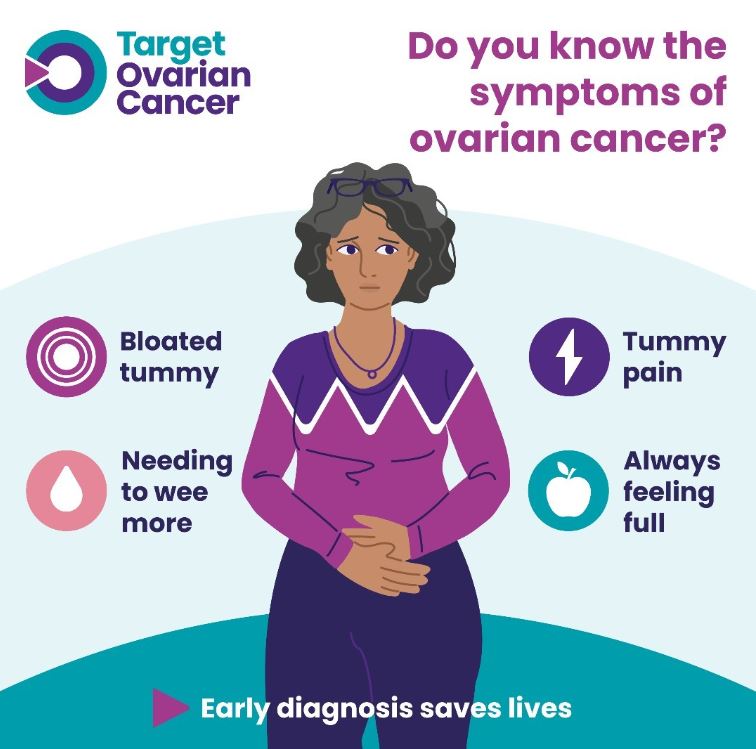
- Ovarian Cancer/Primary Peritoneal
- Ovarian Cancer: Family History
- Ovarian Cancer: What Is Ovarian Cancer? The Ovaries and Reproductive System [+ Video: Cancers of the Female Reproductive System]
- Ovarian, Fallopian Tube, and Primary Peritoneal Cancer–Patient Version
- Perimenopausal and Postmenopausal Bleeding
- Resources To Share: Videos – Under the Paper Gown Comedy Web Series
- Risk Factors
- Sexuality & Cancer
- Stigma In Gynecologic Cancer

- Tips for Tracking Your Bleeding
- Types
- Uterine Cancer
- Uterine Cancer

- Uterine Cancer–Patient Version [+ Image]
- Uterine/Endometrial Cancer/GDT
- Vaginal Cancer
- Vaginal Cancer
- Vaginal Cancer
- Vaginal Cancer
- Vaginal Cancer–Patient Version
- Vaginal and Vulvar Cancers
- Vaginal and Vulvar Cancers: Symptoms of Vaginal and Vulvar Cancers
- Videos and Podcasts: Videos – How Do I Deal With the Menopause After A Diagnosis of Gynaecological Cancer
- Vulval Cancer
- Vulvar Cancer
- Vulvar Cancers
- Vulvar Cancer–Patient Version [+ Image]
- Webinars: Previous – Sexual Dysfunctions, Update on Gynae Cancers and Management
- What Is A Hysterectomy?
- Womb Cancer
- Womb Cancer
- Womb Cancer
- World GO Day [World Gynecologic Oncology Day, 20 September]

- World GO Day [World Gynecologic Oncology Day, 20 September 2025]

- World Ovarian Cancer Day [May 8]
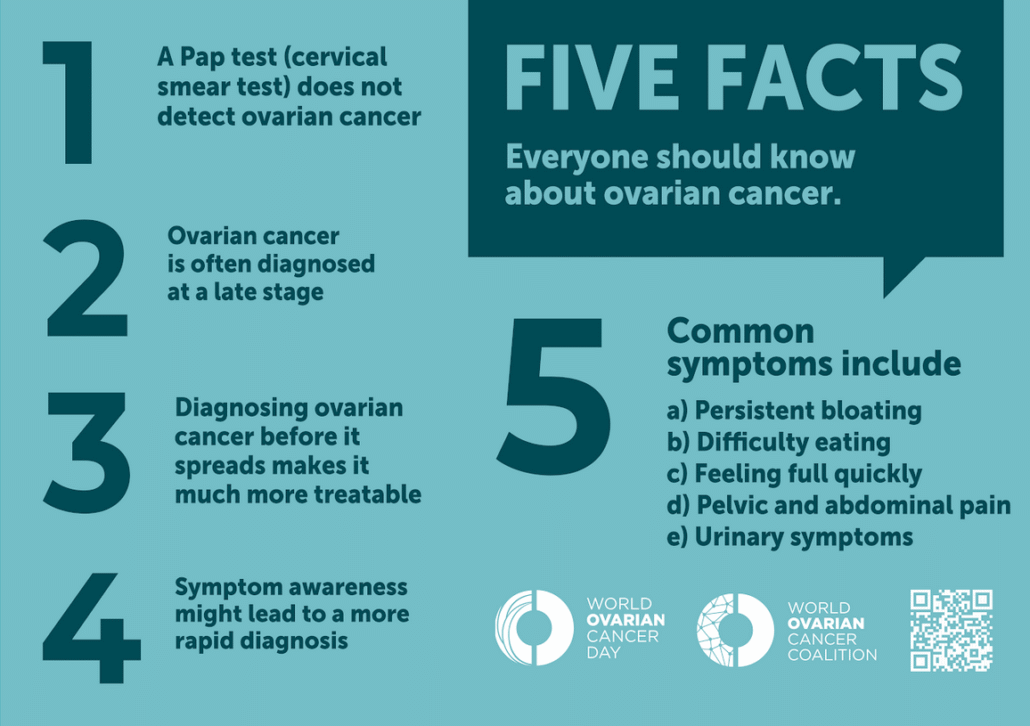
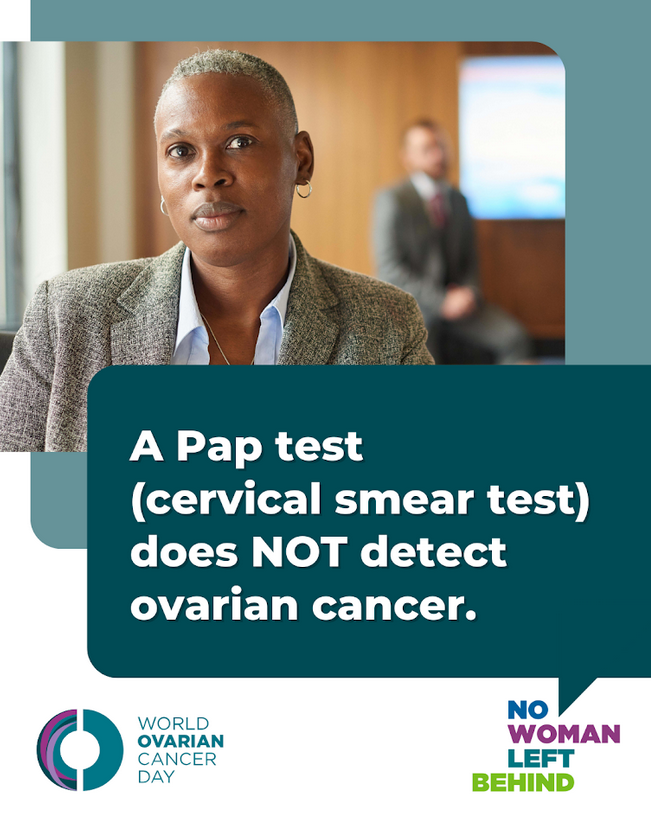
Sources
Where may I find the Sources quoted?
You may find the Sources quoted at:
Sources
- Basics. National Foundation for Women’s Cancer https://foundationforwomenscancer.org/gynecological-cancers/gynecologic-cancer-basics/ Accessed: 26 January 2026
- NCI Dictionary of Cancer Terms: Cancer. National Cancer Institute https://www.cancer.gov/publications/dictionaries/cancer-terms/expand/C Accessed: 26 January 2026
- NCI Dictionary of Cancer Terms: Gynecologic Cancer. National Cancer Institute https://www.cancer.gov/dictionary?cdrid=45982 Accessed: 26 January 2026
- Gynecologic Cancers: Gynecologic Cancers Basics – What It Is. 12 September 2024. Centers for Disease Control and Prevention https://www.cdc.gov/gynecologic-cancer/about/ Accessed: 26 January 2026
- Women’s Cancers (Gynaecological Cancer). Last Reviewed: 19 November 2024. Cancer Research UK https://www.cancerresearchuk.org/about-cancer/type/women/ Accessed: 26 January 2026
- Basics. National Foundation for Women’s Cancer https://foundationforwomenscancer.org/gynecological-cancers/gynecologic-cancer-basics/ Accessed: 26 January 2026
- Gynecologic Cancers: Gynecologic Cancers Basics – Types. 12 September 2024. Centers for Disease Control and Prevention https://www.cdc.gov/gynecologic-cancer/about/ Accessed: 26 January 2026
- Gynecologic Cancers: Symptoms of Gynecologic Cancers – Symptoms: Common Symptoms of Gynecologic Cancers. 05 September 2024. Centers for Disease Control and Prevention https://www.cdc.gov/gynecologic-cancer/symptoms/index.html Accessed: 26 January 2026
- Gynecologic Cancers: Reducing Risk for Gynecologic Cancers – Screening Tests. 26 February 2025. Centers for Disease Control and Prevention https://www.cdc.gov/gynecologic-cancer/prevention/index.html Accessed: 26 January 2026
- Gynecologic Cancers: Reducing Risk for Gynecologic Cancers – Recognize the Symptoms. 26 February 2025. Centers for Disease Control and Prevention https://www.cdc.gov/gynecologic-cancer/prevention/index.html Accessed: 26 January 2026
- Gynecologic Cancers: Symptoms of Gynecologic Cancers – When To Talk To Your Doctor. 05 September 2024. Centers for Disease Control and Prevention https://www.cdc.gov/gynecologic-cancer/symptoms/index.html Accessed: 26 January 2026







